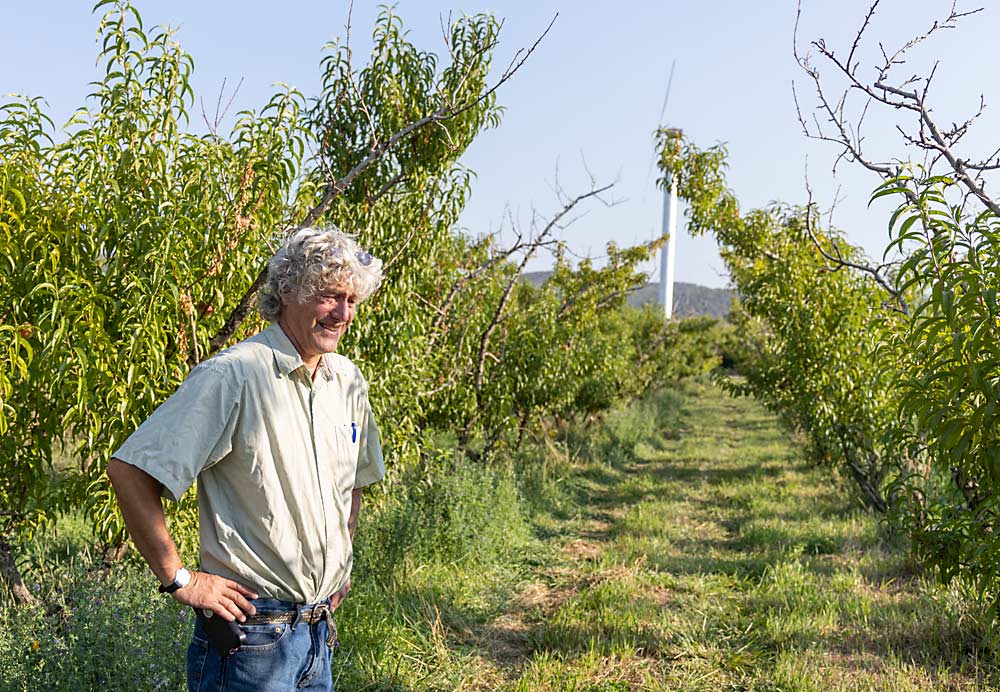
Every peach ripening in Steve Ela’s orchard last summer was a prize.
Most growers would write off a 10 percent crop as a total loss, especially with dead and dying limbs dotting the block, but the future of Ela’s 80-acre organic farm in Delta County, Colorado, depends on loyal customers at Denver farm markets some six hours away.
“If you are not there, you are giving your customers to someone else,” Ela said. His peaches have such a reputation, his customers will happily buy seconds that a bird has already tasted. “I can sell three-quarters of a peach at half price.”
So, he spent 2021 coaxing every fruit he could across the finish line, while removing dead blocks, replanting some and reconsidering the farm’s future in the aftermath of the 2020 freeze disasters. Ela lost over half his peach trees — his top cash crop — and was left with a 20 percent crop in his apples and pears.
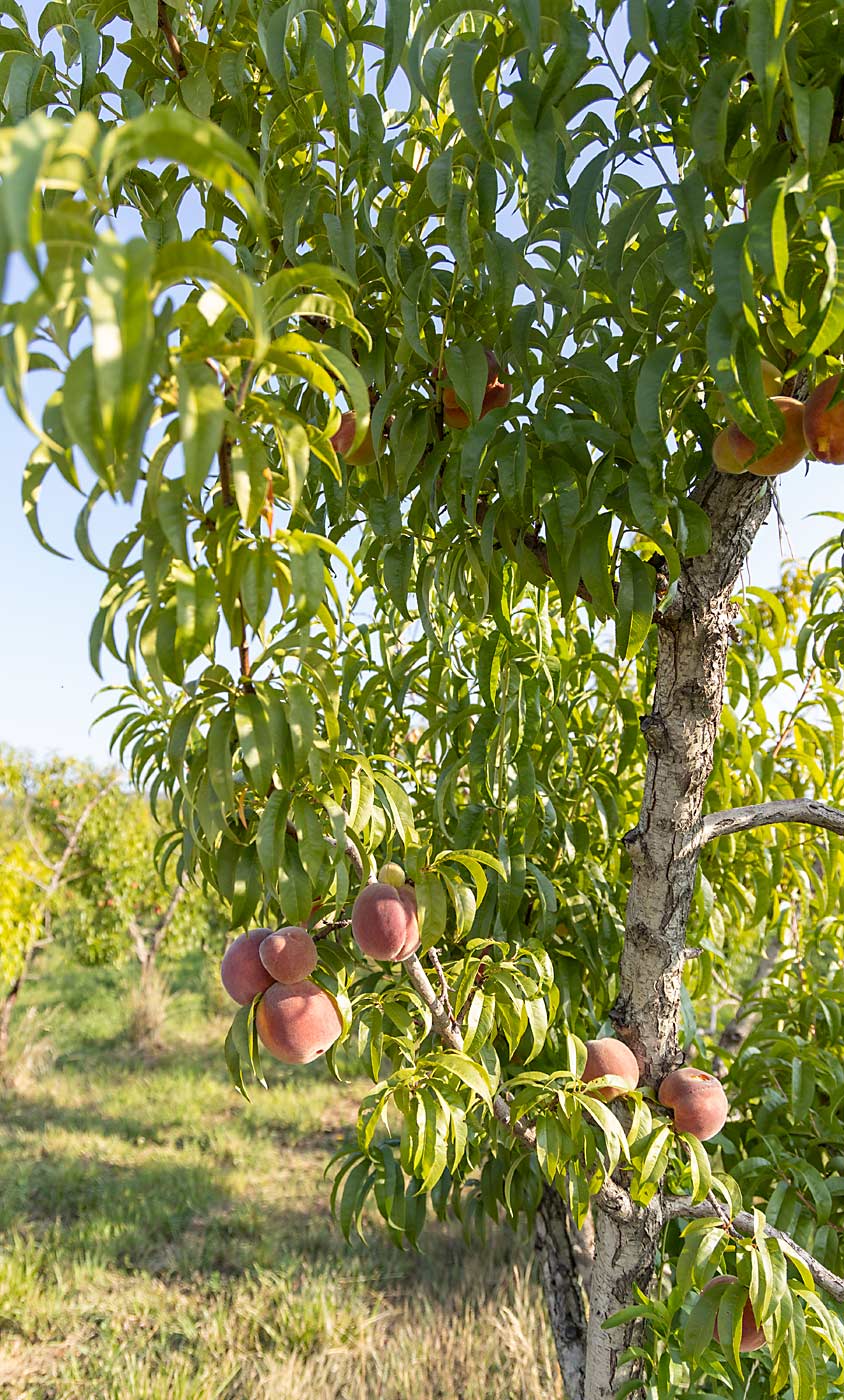
Ela’s farm in Hotchkiss was probably the hardest-hit spot in the state. The high-elevation valley is colder than Grand Junction and Palisade, known for its peach production.
Delta County used to be Colorado’s apple epicenter. But in the past 20 years, production has fallen 75 percent. Many growers got out, and some, like Ela, diversified into stone fruit at the edge of its suitable range. Spring frosts are just part of growing here.
“If you get a frost in Washington, it’s: ‘Oh, we lost our king bloom.’ Here, it’s a miracle if we set king bloom,” Ela said.
But after harvesting just a 20 percent peach crop in 2020 and 10 percent in 2021, plus unrelenting drought in the Colorado River Basin and ever-rising labor costs, “it feels not as much fun as it used to be,” Ela said. “The last two years have eroded our reserves — both financially and psychologically. It’s hard to be optimistic when you’ve been beaten up for two years.”
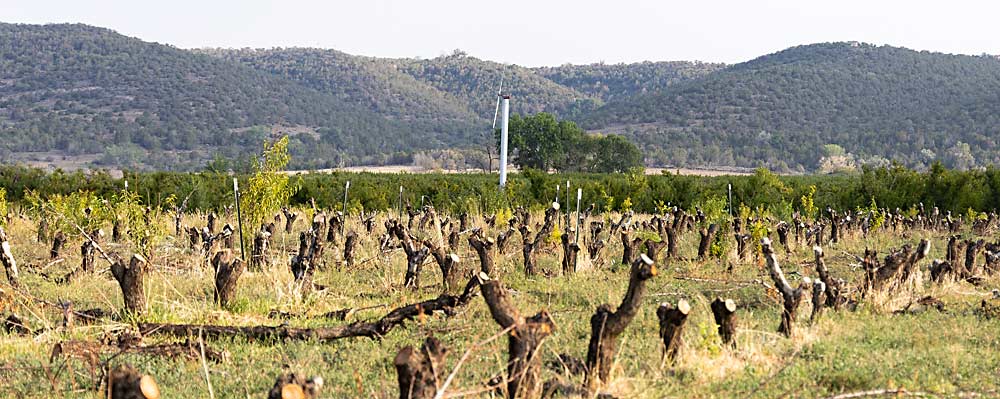
Today, the fourth-generation grower wonders what’s next. His farm sits on a site he and his mom bought in 1987, after development pressure squeezed them out of Grand Junction. They sold Reds to a packing shed until 1998, when they had a great crop and lost money with every bin they picked, Ela recalled.
“So, we had to cut bait or do something different,” he said. The something he had in mind: Drive six hours over the Rocky Mountains in a fruit-laden truck to deliver to Denver markets.
The second year, he hauled 20 percent of the crop to Denver, and it returned 80 percent of the farm’s gross income. He’s been making the drive ever since — even last summer, with only 80 boxes of peaches in a truck that typically holds 1,600, and even when mudslides shut down Interstate 70 and turned his six-hour drive on the highway into seven-plus on winding mountain roads.
Ela is loyal to his customers, and they remain loyal to him.
After sharing about the freeze damage, some asked how to support the farm. Ela came up with the idea to let people “adopt” the care of young trees after he replants, given that it will take four years to regain production. Enough customers responded to support 5 acres of replanting, which was, Ela said, “a very humbling experience.”
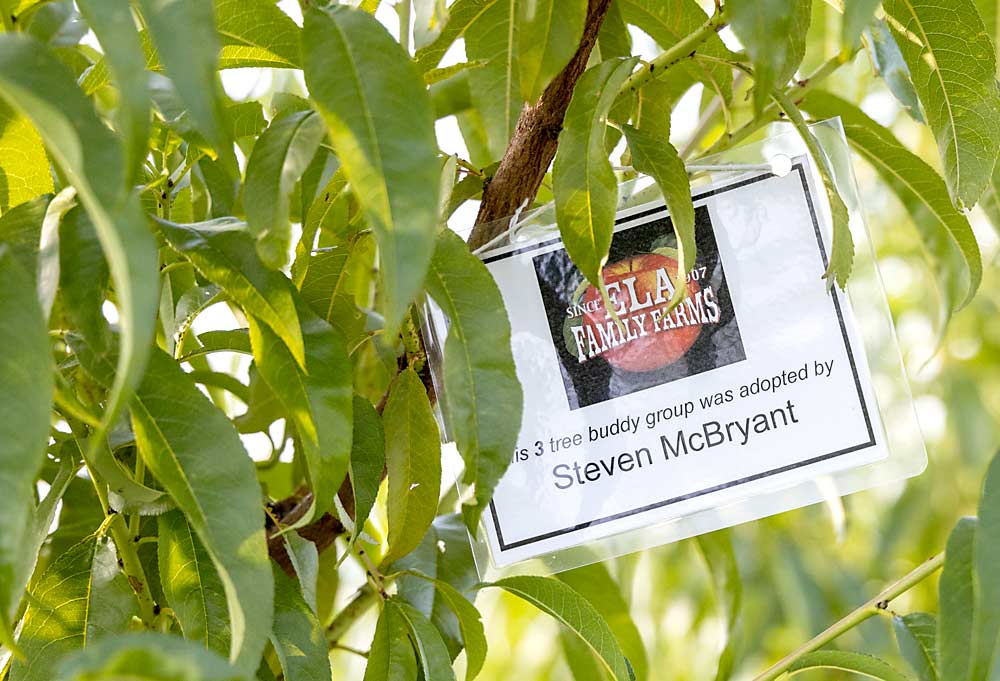
After pivoting to the direct market, Ela began to explore organic production. The region already had strong biological control, and he realized that if he just got rid of Roundup, his farming practices could be certified. He started with peaches and pears first, and by 2004 he had certified the whole farm. But his organic practices continue to evolve, and for Ela, that’s what kept it fun.
“My goal is to grow all our own fertility,” he said of his passion for cover crops. He’s not there yet — still applying 50 to 70 pounds of nitrogen. He farms on very shallow soils, just 20 inches above a clay layer, so he turns to alfalfa and field mallow as cover crops that can root through that clay layer and pull up nutrients.
Ela’s passion for organics led him to serve on the National Organic Standards Board, a U.S. Department of Agriculture-appointed board that decides which materials are allowed in organic production. His five-year term, which featured contentious debate on everything from hydroponics to fraud, wrapped up last year.
“I’m feeling good putting more thoughts back into the farm,” he said.
He and his family, including his 97-year-old mom, Shirley, are considering the future with a little less acreage, perhaps more ways to connect customers with their farm and their fruit.
“It feels like the ’90s again. We’re at another turning point and we can’t keep doing the same thing,” he said. “We have to be creative again.”
—by Kate Prengaman

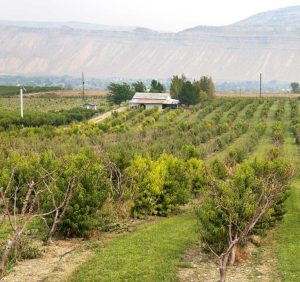





Thank you for this report. I am sorry to hear of the crop loss, though. In 1974-1978, I worked at the Colorado Department of Ag, Biocontrol unit in Palisade. I am so found of the area and the culture.
Walt Bentley